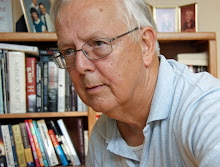In fourth grade, pupils are in line between classes. I have a pocket dictionary and announce in a too-loud voice to a classmate, "See, 'bitch' isn't swearing. It means a female dog." An angry teacher confiscates my dictionary, and I never see it again.
 |
| Mickey Mantle |
Dad takes me to a July 4 doubleheader at Fenway Park, Yankees vs. Red Sox. I love the Sox because they're the home team, but I worship the Yankees because they win so often. Mantle hits a single, and in the blink of an eye he's on first base. Later he belts one far, far over the left-field wall, up around the lights. I have never seen anything like it. The teams split the doubleheader. My Red Sox heroes are Ted Williams, of course, and lesser gods like Harry Agganis and Jimmy Piersall. Agganis is a local kid from Lynn who graduates from college in 1953, joins the Sox in 1954, and dies of pneumonia in 1955, an awful loss. Piersall is a flashy right fielder who suffers from mental illness. There's a movie about him,
Fear Strikes Out. I listen to Curt Gowdy announcing a lot of games on the radio.
In fifth grade, our teacher warns the class that there's a strange man in the area who is asking children to go for a walk with him.
Warning: Do not go with him. Shortly after, that man approaches me, and I run away in terror.
Our first car is an emerald green 1953 Chevy, complete with an AM radio. We take it on a three-week trip to Texas to see Mom's relatives, and we make a side trip to Monterey in Mexico. We make lots of stops at watermelon stands on rural roads, and I become thoroughly sick of watermelon. We decide to stop for lunch at a family restaurant in the South, but Dad sees a sign in the window saying they don't serve blacks, and he says we aren't going to eat at that kind of place. There are no interstate highways. We enjoy seeing the Burma Shave signs along the country roads, one sign for each line:
IF YOU DON'T KNOW
WHOSE SIGNS THESE ARE
YOU CAN'T HAVE
DRIVEN VERY FAR
We see lots of them, because Dad drives relentlessly, 500 miles per day at 55 miles per hour or slower. My brothers and I come to look on family road trips as ordeals. In cities, he routinely runs red lights if he thinks it's safe. We kids keep count and treat it as a joke. Oh, and he's a spitter. Spits out the car window when he's driving. One day I'm in the seat behind him with my window open. I complain that he's just spit in my face. Close your window, he says.
We get our first TV when I'm 12 or 13. It's a used console, and Dad examines it in the store. The thing is huge. Dad finds a dead mouse in the case behind the picture tube, but we bring it home anyway. Probably all he and Mom can afford. We watch lots of Jack Benny, The $64,000 Question, Playhouse 90, and the Friday Night Fights. No station broadcasts 24/7, so we also see plenty of test patterns.
 |
| Audie Murphy |
Movies at Loew's Theater in Beverly are as little 16 cents for matinees, usually including cartoons and a pair of movies. In the evening, a newsreel replaces the cartoons. We're Catholics, so we pay attention to the Legion of Decency ratings. The bad movies are labeled "Morally objectionable in part for all," or at the worst, "Condemned." I'm too young to understand the immoral stuff anyway. My favorites are the Disney and war movies. World War II hero Audie Murphy stars himself in
To Hell and Back and thrills me to no end.
Dad has an unpredictable temper, often arguing with neighbors or our family. Sometimes the police show up. At his best, he reads to the family on Friday evenings from
Reader's Digest Condensed Books. I love that, especially when he reads
The Year the Yankees Lost the Pennant. But his anger can flare with no notice, and he can get physical with all of us. There are times when he threatens to kill us all, but in time I learn that he's just letting off steam. He doesn't like other people swearing, but in his rages he tells Mom and us boys that we can all "go take a flying fuck at the moon." I only understand the moon part, and I can't picture it but I know it's vile. The most memorable physical hurt I remember is a Christmas morning when I quarrel with my older brother and Dad breaks it up by hitting me in the face with his leather belt. Mainly, his weapons are words.
And you know what? I still love him, at least when I'm not busy hating him. Life frustrates him, and when his moods sour I just try to stay out of his way. The storms usually pass quickly. Mom, though, never forgets. Decades after his death, she still complains about him.
Mom buys me comic books at ten cents each: Donald Duck and Mickey Mouse, whenever a new one comes out. After a few months when we've all read them, Mom bundles them up and mails them to Dad's relatives in British Honduras. In the Sunday paper, I love to read
Pogo and
Dick Tracy, with his cool two-way wrist radio. Pogo the possum gives me an early taste of political satire, though I'm too young to recognize it. Pogo's artist Walt Kelley is taking potshots at government officials like Senator Joe McCarthy. Dad thinks McCarthy is a little extreme, but at least he hates those commies.























.JPG)























